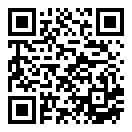ABSTRACTS
Article data in English (انگلیسی)
خلاصة المحتویات
مراحل تطور نظریة «الالهام» بالاستناد الى الآیات القرآنیة علی الاسدی
تقول هذه النظریة بان هناک نوعاً آخر من انواع المعرفة الى جانب العلوم التجربیة و العلوم العقلیة و معرفة اخبار الوحی یسمى الادراک «الالهامی و العرفانی» و هو نوع من المعرفة له ابعاد و وسائل و نظرة شمولیة خاصة به. من مستلزمات الادراک الالهامی تزکیة النفس و تهذیبها و تطهیر الروح و النفس، و یُعتبر القلب وسیلة اکتساب هذا اللون من الادراک.
و یمکن لاهل الایمان و الصلاح و التقوى التوفر على هذه النوع من الادراک و بدرجة تتناسب مع درجة ایمانهم و صلاحهم و ما یتمتعون به من صفاء روحی. ان تحقق هذا النوع من الادراک لا یرتبط بای عامل عاطفی او عقلی لأنه من المعارف التی یقذفها اللّه فی قلب العبد، و یمثل مظهراً من مظاهر الأمداد الغیبی.
یُستدَل من بعض التقاریر بان «الألهام» باعتباره احد مصادر المعرفة کان فی البدایة من المواضیع الکلامیة و من ثم وجد طریقه الى العرفان و الفلسفة. و قد رافق مراحل تطور هذه النظریة تحدیات منها مسألة علاقة المعرفة الالهامیة بالوحی، النبوّة، ختم النبوّة، وساوس الشیطان، و التعالیم و الاحکام الشرعیة.
القرآن الکریم; خاتمة الوحی مصطفى کریمی
عند دراسة موضوع الوحی او علوم القرآن الکریم لابد للباحث من البحث عن اجابة للسؤال التالی: هل ان الوحی (الذی یعنی استلام الحقائق او العبارات من اللّه تعالى لغرض هدایة الناس و الذی بدأ بعد مجیء آدم(علیه السلام)الى الارض) قد توقف اثر نزول آخر آیة من آیات القرآن الکریم ام ان هذا النوع من الارتباط مع اللّه لم ینقطع و هناک افراد ممن یوحى الیهم؟
یعتقد المسلمون بأن القرآن الکریم آخر الکتب السماویة و ان الفترة التی نزل فیها تمثل آخر مرحلة من مراحل الوحی و یقولون بأن الوحی قد توقف بعد نزول آخر آیة من القرآن الکریم.
و یرى بعض المفکرین بان هناک اجماعاً حول هذا الرأی فیما یذهب بعضهم الى القول بان الاعتقاد بذلک یُعدّ من ضرورات الدین.
تعرض المقالة الحالیة آراء مؤیدی و معارضی هذا الرأی و تناقش آراء کل طرف و تقیّمها.
تفسیر القرآن "حسب الموضوع"; الضرورة و الامکان حسن صادقی
المقصود بالتفسیر حسب الموضوع دراسة و تمحیص جمیع الآیات القرآنیة التی تتعلق بموضوع معین بغیة التعرف على الرؤیة القرآنیة فی ذلک الموضوع.
من الملاحظ ان اهتمام العلماء و الباحثین بالتفسیر حسب الموضوع قد تزاید فی العصر الماضی و هناک ادلة عقلیة و نقلیة تشیر الى امکانه و ضرورته فهو لا یمثل ظاهرة طارئة او امراً مستهجناً. اضافة الى ذلک یلاحظ بان العلماء و الباحثین الذین یدرسون مواضیع فقهیة و مواضیع اخرى یهتمون بدراسة مفاهیم الآیات القرآنیة التی تتعلق بهذه المواضیع فی محاولتهم الوقوف على وجهة نظر القرآن الکریم مما یؤید امکان و ضرورة هذا اللون من التفسیر.
یترکز البحث حول تفسیر القرآن حسب الموضوع و یقدم الباحث ادلة عقلیة و نقلیة تثبت امکانه و ضرورته.
ABSTRACTS
The Course of Development of the Theory of "Inspiration" with Emphasis on the Qur¨anic Verses by Ali Asadi
This theory suggests that, in addition to man¨s ability to acquire empirical knowledge, intellectual knowledge and the knowledge of revelation, he can have access to another kind of knowledge which has different background, means, domain and world - view, and that is the "inspirational and gnostic knowledge". Salvation, self - refinement and spiritual purification are the prequisites for the attainment of this kind of knowledge, which only human hearts can perceive. Righteous and pious people are capable of attaining this knowledge, and the quality of their acquisition of it depends on the degree of their faith, good deeds and spiritual purity. This kind of perception has nothing to do with sensory or intellectual factors because it is a God - gifted knowledge, through which the Divine Unseen support for human beings is manifested.
According to some accounts, "inspiration", which is one of the sources of knowledge, began as a theological problem and was the special concern of the Muslims, but later on it gained a position in the domain of philosophy and mysticism. Among the challenges faced by this theory is the relationship of inspirational knowledge with revelation, prophethood, finality (Khatamyyah), satanic insinuations and Islamic injunctions.
The Holy Qur¨an; the Seal of Revelation by Mustafa Karimi
Among the important issues in the field of revelation and the Qur¨an is exploring whether revelation (i.e. the divine revelation of truth which started by the time Adam came to live on the earth) ended after the revelation of last Qur¨nic verse and when the holy Prophet passed away or whether this kind of communication between God and some certain people continued after that. Muslim researchers as well as some none - Muslim researchers admit that the Qur¨an is the seal of heavenly Books, and the end of the revelation of the holy Qur¨an marks the end of the period of revelation. Furthermore, there is a consensus of opinion among some Muslim scholars on this issue and some scholars consider it one of the necessities of the faith in Islam.
The present article elaborates on the views of those who argue for and those who argue against this idea. It also essesses the views put forward by either side and comments on them.
Subject - based Commentary; the Possibility and Necessity by Hassan Sadiqi
Subject - based commentary means making a thorough examination of the Qur¨anic verses related to a specific subject with the aim of understanding the Qur¨anic view of it. Although thinkers¨ interest in this kind of commentary increased in the recent period, it is neither a novel phenomenon nor something undesirable. Intellectual knowledge and transmitted knowledge confirm the possibility of and necessity for this kind of commentary. The special attention paid by those who study fiqhi issues or other issues to the study of the Qur¨anic verses related to such issues in an attempt to grasp the Qur¨anic perspective is another proof of the possibility of and necessity for this kind of commentary.
The present article casts light on the proofs which support the possibility of and necessity for subject - based commentary, and stresses on the proofs introduced by the Qur¨an and transmitted narrations.





